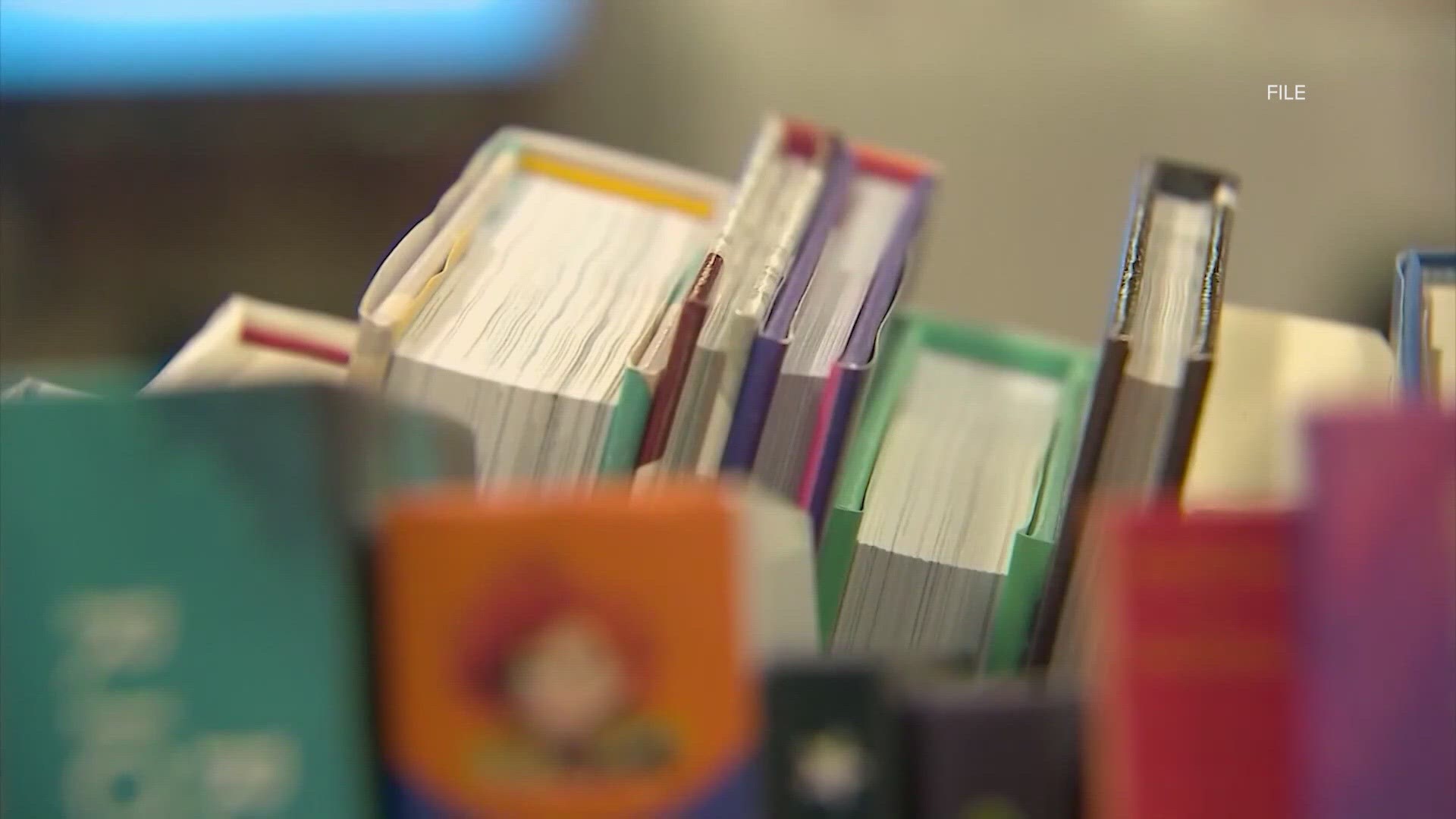MAINE, Maine — Banned Books Week is this week, an annual event dedicated to the freedom to read and the choice people have to read the books that they want.
In many cases, books in Maine schools have been challenged because members of the community have said they're worried about violence or sexually explicit material. Most of the challenged books feature LGBTQ characters.
Heather Perkinson is the president of the Maine Association of School Libraries. She said in students in schools should feel represented in their libraries, books, and classrooms. She added that banning certain books in schools is an attack to our public education system.
"Public education is really one of the bedrocks of our democracy, and its where children and adults come together and can learn about other identities and other beliefs and ideas," Perkinson said. "People who are challenging these books are challenging and attacking the different perspectives and identities and ideas that they represent."
Perkinson explained that when a book is challenged, the Maine Association of School Librarians provides resources and information to the librarian who is facing the challenge.
Eight school districts in Maine have received challenges to the book "Gender Queer," and only one district has fully banned the book: RSU 56 in Dixfield.
Librarians said each challenge can cost schools districts hundreds of dollars in taxpayer money and take dozens of hours of staff time.
Perkinson said every school district in Maine is required to have an "IJJ - Selection of Educational Materials" policy and an "IJJ-E Citizen's Challenge of Educational Media" form. When a community member decides to challenge a book, they have to fill out the form (most require that you be a resident in the school district's community) and then a committee is formed by the superintendent to review the book. The committee members have to read the book and decide if it belongs in the library. They use the "IJJ" policy to help them make that decision. They then make a recommendation to the school board about what to do with the book. If the challenger objects to the committee's decision, they can file an appeal with the school board. Then, the school board members read the book and decide what to do with it.
If a parent objects to a book being used for required reading in a class, that is a different situation and they can discuss that with the teacher and the principal. That is a different policy, "IMB," and usually what happens there is the school provides an alternative book to the student.
Examples of these policies can be found here.
There are slight differences in the policies from one district to the next, but they all have the same basic components.
"I know for a fact that there are students for whom these books are extremely important, and I've had kids tell me that books have meant a tremendous amount to them because they see themselves reflected in these books, and they think, 'I thought I was the only one who felt this way or saw myself this way.' And books can really change lives and make a huge difference for kids, so its really important that we make sure they have access to them," Perkinson said. "We are definitely all about making schools safe for every child and we feel that it's crucial for children to see themselves represented. For our school to be safe, it should be welcoming of all identities."

